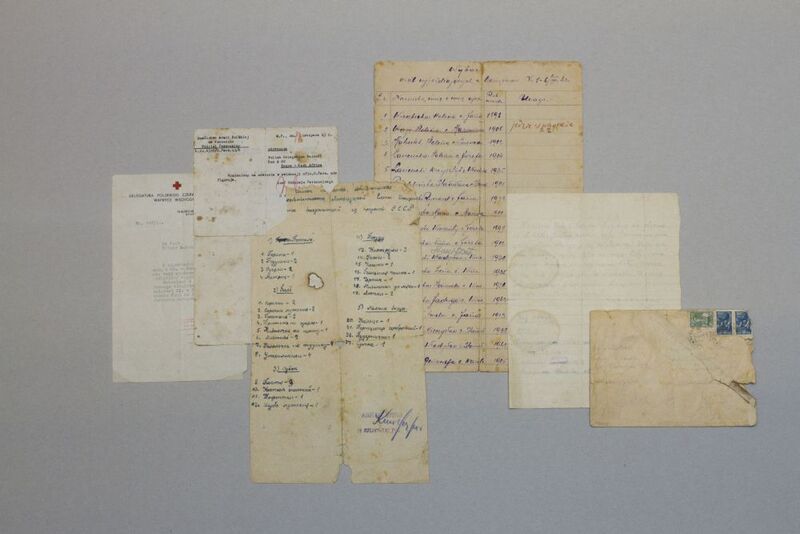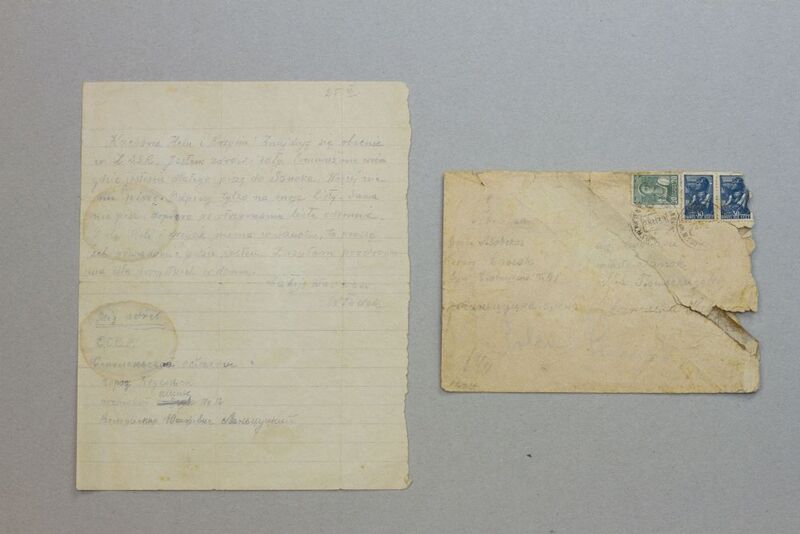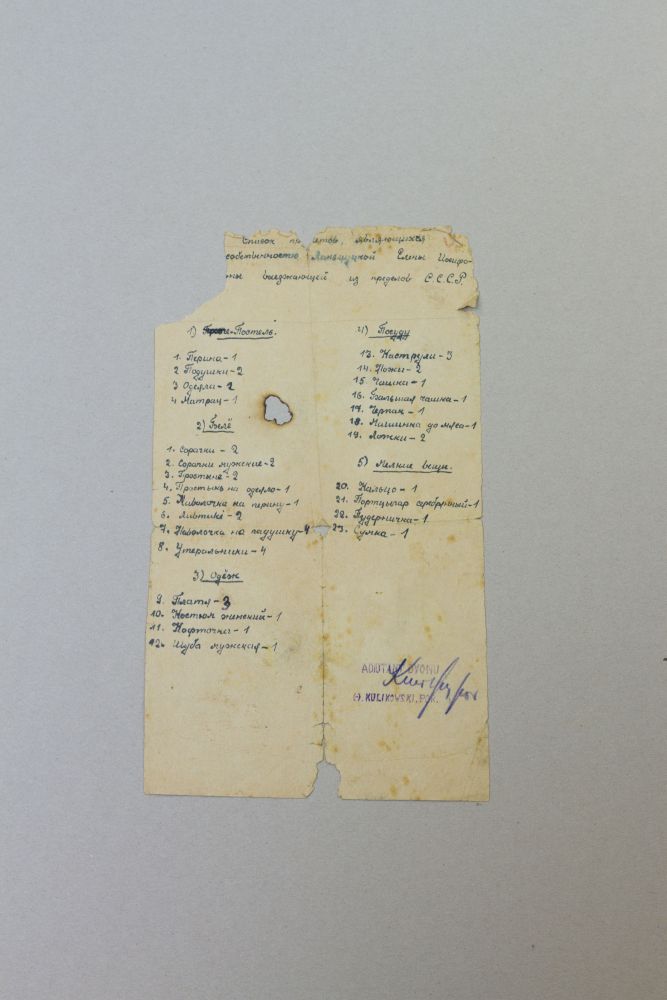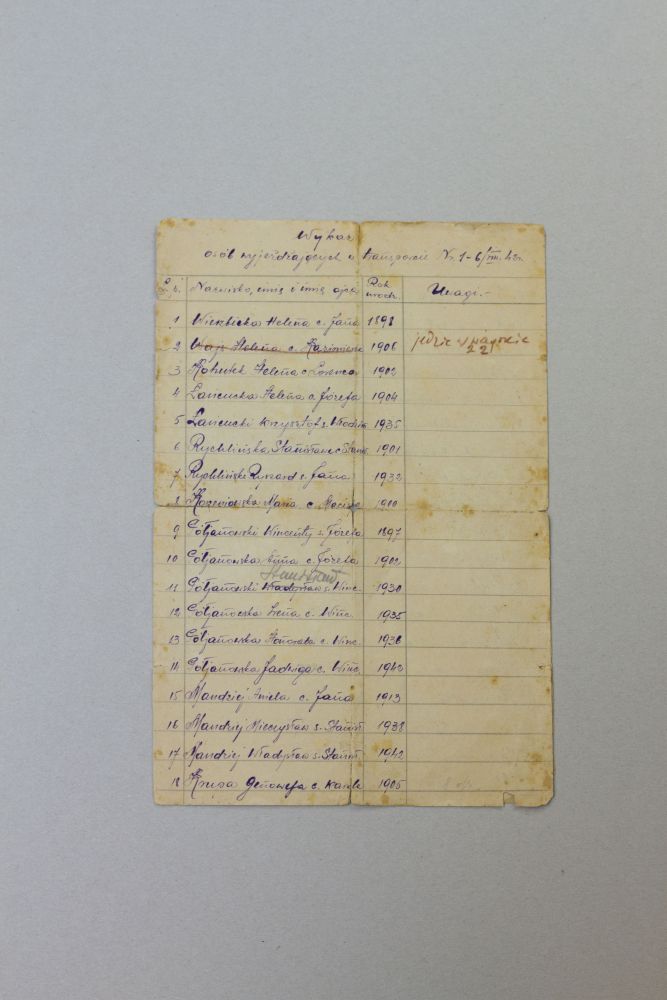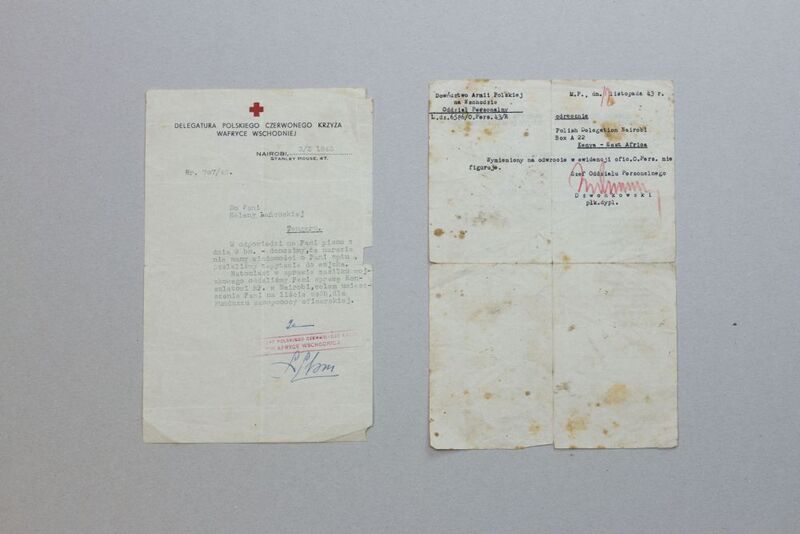During the meeting with the Polish community in Melbourne Krzysztof Łańcucki, former President of the Federal Council of Polish Associations in Australia, handed over certain valuable documents to the Archive.The IPN’s archival resource will therefore be enriched by materials concerning his mother Helena Łańcucka and father Włodzimierz Łańcucki, who as lieutenant of the reserve of 50th Infantry Regiment was placed in a POW camp during the defence of Poland in 1939, and was later murdered in Katyn. In April 1940 Helena Łańcucka with her small son Krzysztof was deported to Kazachstan by the Soviets, where she became head of a Polish school in the village of Suzak. In August 1942 during the evacuation of General Władysław Anders’ Polish Army she left the USSR for Iran and then went to the British Eastern Africa. In the village of Tengeru in Tanganyika (now Tanzania) a Polish Estate, inhabited by several thousand Polish women, children and men incapable for military service, was set up. Helena Łańcucka was a teacher at a public school, head of a yearly school of housekeeping, teacher in a tailoring gymnasium and then head of a kindergarten. When in 1950 under pressure of British authorities the Polish Estate was liquidated, Helena Łańcucka and her son Krzysztof moved to Australia where she finally settled.
The materials handed over to the Archive by Krzysztof Łańcucki portray the fate of his mother Helena, caught up in the whirlwind of war, in the period from her deportation into the USSR to the liquidation of the Polish Estate in Tengeru in 1950. Among them are certificates issued for Helena Łańcucka by Polish authorities in Teheran, official letters by Polish consular authorities concerning her sea voyage to the British Eastern Africa, documents linked with her teaching work in Tengeru, letters granting financial aid from Polish authorities in exile or testimonies by members of the Polish Estate in Tengeru, confirming the prewar past of Helena Łańcucka and her marriage with Włodzimierz Łańcucki. Among the most valuable and concurrently the most interesting materials one may recount a letter of Lieutenant Włodzimierz Łańcucki, of 25 November 1939 r., written to his family from a Soviet POW camp in Kozielsk, list of 55 persons (including H. Łańcucka and her son Krzysztof) leaving the USSR for Iran by transport no. 1 on 6 August 1942, list of goods taken by H. Łańcucka in connection with her departure to Iran and her correspondence with the Command of the Polish Army in the East and Delegation of the Polish Red Cross in Eastern Africa of 1943, concerning the search for her husband Lieutenant W. Łańcucki. The documents constitute a valuable contribution to the IPN’s archival resource and a captivating material to conduct research on the history of Polish deportees to the USSR who settled abroad after the war.
After their conservation and cataloguing the documents will be made accessible to scientists, journalists and relevant institutions, in accordance with the provisions of the act of 18 December 1998 on the Institute of National Remembrance– Commission for the Prosecution of Crimes against the Polish Nation.
